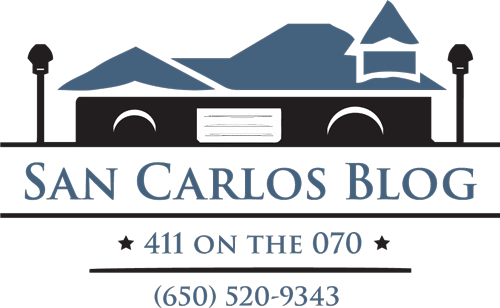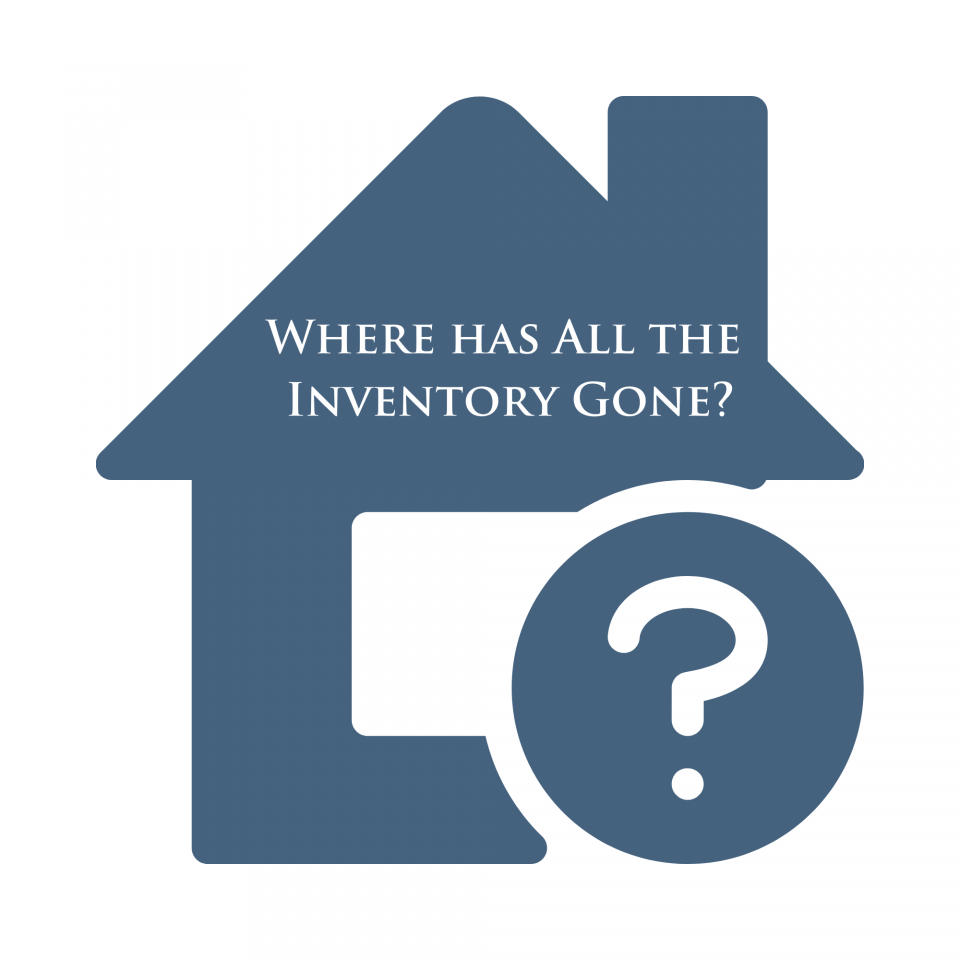Have you been constantly refreshing home search sites that detail current listings in San Carlos, waiting for a new property to appear on your screen? If so, you have been missing out and only getting a portion of the properties currently available in San Carlos. It is a harsh reality that many frustrated buyers in San Carlos are now facing.
The landscape for the sale of homes on the mid-peninsula is changing. Technology, fast-paced lives, jobs with long hours and the demand for a less stressful option for home selling has finally broken through. Even though its new scale of use is still technically in its infancy, make no mistake about it, it is here to stay.
The off-market arena can no longer be ignored. Over the last several years, off-market sales have been slowly chipping away at the market share that has been long-held by the traditional, on-market, MLS-Active sales in San Carlos. The off-market arena has been growing steadily. However, it seems poised to take a record market share in 2020. I have been hesitant to come forward with such a strong declaration, but the willingness and desire of sellers to sell their home off-market is so overwhelming that it can no longer be ignored and must be fully taken into account by any buyer seriously looking at a San Carlos home purchase in 2020.
The final push for me to write this article was realizing that I have closed four transactions for buyers and sellers in San Carlos over the first 43 days of this year, and all four were off-market purchases. With the fifth now on its way, it is very obvious that the off-market arena can no longer be considered an anomaly in San Carlos. The pursuit of an off-market sale for sellers is becoming a more comfortable “Option B” when selling their home. For San Carlos buyers, taking advantage of these types of opportunities can increase their chances exponentially for finding that perfect home.
What is off-market?
Let’s start at the top. An off-market property is a property that has been listed by a brokerage, but has not yet been made available to the general public for sale via a traditional form of marketing such as our local MLS.
Why would a seller be willing to sell their home off-market?
This is the most popular and logical question that I receive from new buyers. When we first started to see a spike in off-market sales a few years back, it was a bit of a mystery. However, with so many off-market sales breaking into our market there is a lot more to draw on as to why sellers are choosing this option.
I have some concrete examples detailed below, but first I have come to the conclusion that while there are several concrete and accepted examples of why sellers are moving more toward off-market sales, the sudden off-market push is bigger than that. The mid-peninsula has changed. Our daily lives have changed and technology has changed. Homes pursuing a traditional public sale follow almost the identical process as they did 50-60 years ago. Open houses, MLS, photos, flyers, marketing, etc. Absent the ability to advertise on social media, the framework of the process is still the same.
In the real estate world “off-market” has connotations that unfairly conjure up ideas of exclusivity, secretiveness and being “in-the-know”. Additionally, what most of the buying and selling public is surprised to hear is that real estate brokerages really dislike any off-market deal. There is a tremendous amount of liability attached to them. The most notable issue centers on whether the listing agent got the highest and best price. However, it is time for brokerages and agents to readjust their thinking on the archaic philosophy surrounding off-market sales. Of course, agents should be doing everything possible to get their seller the highest and best price. However, the approach now needs to be far more global. Agents need to look at and get input from a variety of areas in determining the best route for their sellers so that they can present the options for the sale as objectively as possible, without only presenting the traditional and singular route.
Here are just a few of the reasons sellers choose to keep their sale off-market:
- It’s a hassle. Many sellers are individuals who are working long hours and trying to manage not only their professional lives, but the lives of their family as well. The thought of simply having the process done quietly with a few hand selected, well-qualified and pre-screened buyers is worth it to many of these types of sellers. They are choosing this option instead of the traditional open house schedule, broker tours, private tours, marketing sessions, photo sessions, etc.
- Stress. This may be more of a 1A than 2, but the thought of having 300 strangers through their home on an open house weekend, is too much to handle for some sellers. It can be unnerving, especially considering the fact that at least 85% of the people coming through your open house have absolutely no intention of ever buying it. The percentage may be higher, but I base this on my own experience.
- Move-up Seller. Out of nowhere, it happens. A seller is comfortable in their current home when all of the sudden something unexpectedly comes on the market and it is their dream home. This seller does not have the time to go through the traditional stages needed for a full public MLS debut. They need to put their home in contract at a fair price ASAP so that they can bid on the new home. This situation happens more frequently than you may imagine and it is a regular player in the off-market arena.
- Risk Assessment. Many of our sellers in San Carlos have already passed their $500,000 exemption/gain on their home. In other words, after calculating their final basis at the sale, and adding $500,000 to that number, they are selling for a number even higher and that gain is now subject to taxation. Here is an example:
John and Jane purchased their home for $800,000 and added a new kitchen and bathroom during their ownership for $200,000. John and Jane have a final basis of $1,000,000 ($800,000 + $200,000). Now let’s suppose that ten years later John and Jane sell that home at $2,000,000. Their final basis of $1,000,000, plus $500,000 exemption/gain is equal to $1,500,000. The remaining $500,000 will be subject to taxation (minus any selling fees).
Where’s the risk assessment? Hang in there, we are almost there. If you are a Seller, the sole issue with selling your home off-market relates to highest and best price. In other words, how can you be sure that you received the highest and best price for your home if it was never truly bounced off the public market. In two words: you can’t. That is the risk if you are a seller, and frankly, the listing agent. For homes that I list, my worst fear is selling a property under what it is truly worth.
However, for most off-market sellers that risk is heavily mitigated. Returning to our example above, John and Jane sold their home for $2,000,000, off-market. What if that same seller had put their home of the open market and a buyer went beyond the comparables and submits an above fair market value offer to purchase at $2,050,000. For an extra $50,000 most sellers would likely agree that they would forego the ease of the off-market sale and deal with all that comes with publicly selling a home. However, looking at the proposed profit more carefully tells us that it is not $50,000 that the seller is truly giving up. Keep in mind that since the seller is beyond their $500,000 exemption, any amount above the $1,500,000 will be taxable. This means that the bonus $50,000 is going to be taxed and also subject to sales fees. What was once $50,000, can quickly be closer to $25,000 in terms of net gain to the seller.
Truly assessing risk in an off-market sale centers around setting a non-negotiable price that the agent and seller believe is the fair market value for the property, and being able to justify possibly leaving some money on the table for the easier transaction route. More specifically, in a worst case scenario, how much money could be left on the table and is that sum of money taxed, so that the risk is somewhat minimized.
Finding the Off-Market Properties
With such limited inventory, it only makes sense that buyers will want to put themselves directly in front of every property listed on the MLS and the stream of off-market properties as well. The easiest way to do this, not just in San Carlos, but in any town where off-market properties are viable, is to go with extremely local representation. Luckily, the top producing agents in San Carlos are very good, experienced and capable of producing these off-market properties.
Now, some may see this post as self-serving, and I understand that. However, it is also the most reasonable conclusion for a buyer to arrive at when working through a strategy that involves being exposed to the greatest number of available properties. Having seen this shift up close for the past several years and an even more dramatic shift recently, to believe anything different would be the equivalent of burying your head in the sand. This is the new reality of our market. The off-market arena of properties is here to stay and will only increase in size. Our property value surge of the past 8 years, busy schedules, profits limited by taxes with regard to home sales and the overall massive landscape shift of the mid-peninsula when it comes to our daily lives in general, have vaulted our communities to a place where there is a craving for a second option for a home sale.
There are many legal changes coming for realtors in the months ahead as to how they can shop an off-market property. Some of the more traditional sites that agents used to be able to tap into to find off-market properties in an area that was not their home area of expertise will be going by the wayside and unable to operate in the manner they have been. This will, in turn, create an even greater amount of emphasis on the hyperlocal agents working in the exact neighborhood you are looking for. Real estate is about to be far more local than it ever has before as Option B is here to stay.






Leave A Reply